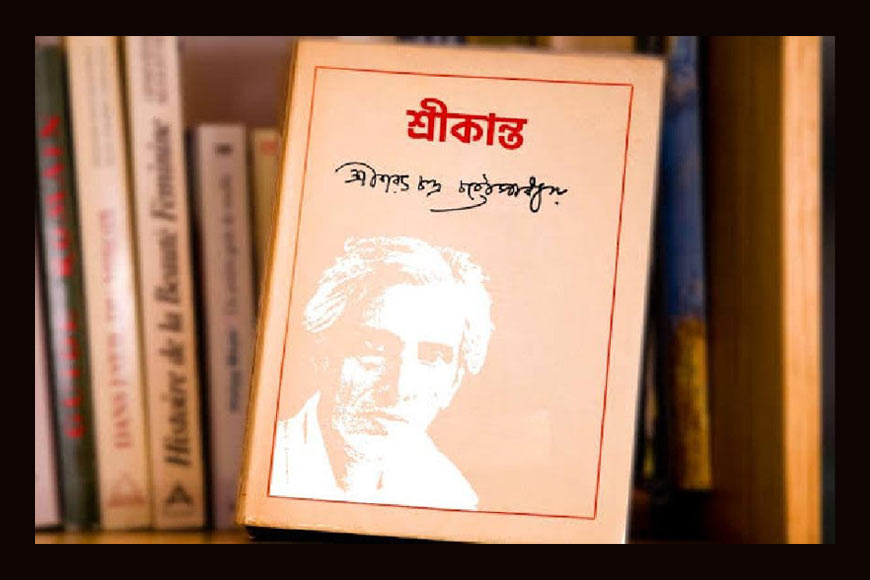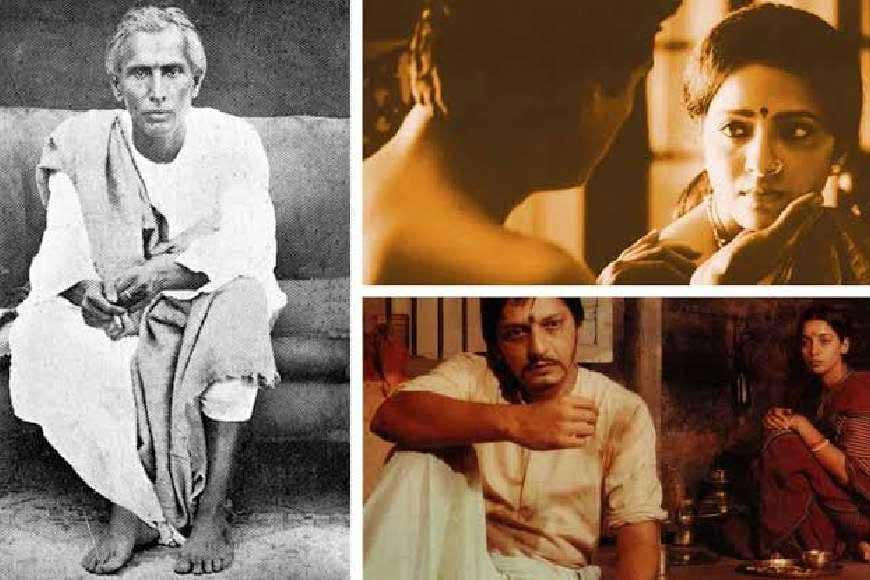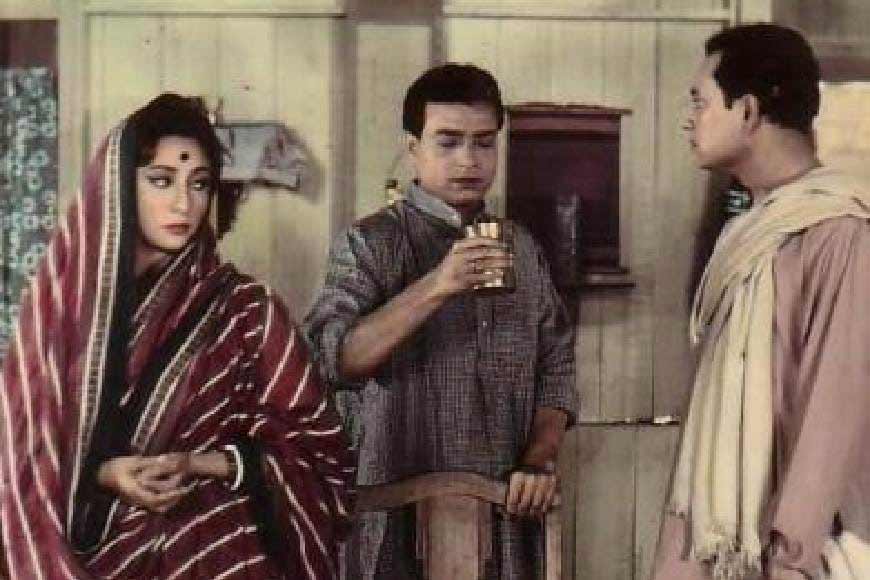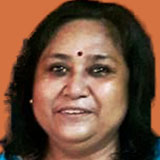Women’s Day Series --- Sarat Chandra’s Abhaya defies traditional morality

Although women constitute half of society, for countless centuries, their position has been abysmal. In the early history of India, women walked the earth as equals of men but foreign invasions, a thousand years ago, drove them into a long exile. The middle of the 19th century was an epoch-making era in the annals of India’s history when in colonial Bengal, various patriarchal ideologies were challenged by many social reformers like Raja Rammohan Ray and Ishwar Chandra Vidyasagar. In fact, Bengali women in those days contributed to myriad fields by being directly involved and even leading from the forefront. But alas! Society found it convenient to either overlook or ignore them. Hence, the responsibility to resurrect these independent, free-thinking, liberal and brave women fell upon the authors and poets. Bengali authors, many of whom were women themselves, created a gamut of female characters who are a beacon of hope for the oppressed even today. As part of International Women’s Day celebrations, we shall highlight some iconic female characters from Bengali short stories or novels who have left their indelible mark on life and literature
“If a man wants to be redeemed, nobody questions his attempt; but in our case, why are all the paths closed? …. Why won’t you let me be purified?” (from ‘Srikanta’)
Depiction of bold and progressive female characters in Bengali fiction is incomplete without mentioning the works of author Sarat Chandra Chattopadhyay. Chattopadhyay is not a feminist in the traditional sense nor does he take the side of forceful assertion of women rights but he shows a significant understanding of woman psyche and to a great extent, protests against a social and religious double standard that ultimately results in gender nonconformity. He values humanity more than chastity and raises his voice against traditional morality and religious dogmatism in depicting illicit love relationships and in disclosing the deceptions underlying the established marriage custom.

Chattopadhyay’s depiction of Indian women in the early 19th-century social context is best reflected in his semi-autobiographical novel, Srikanta. In this novel, Chattopadhyay’s portrayal of women characters: Annada, Rajlakshmi, Abhaya and Kamallata assert their individuality, self-worth and deliverances boldly in the then male-controlled and traditional society. These characters are unwavering and resolute enough to cast around an emancipated futuristic outlook. They are all precursors to the later-day women characters depicted by feminist authors.
Chattopadhyay’s unconventional idea of chastity and reversed roles of women is best depicted in the female characters in Srikanta. He explores the various nuances of the female characters who fearlessly look down on the patriarchal impediments. He shows how the institution of marriage fails to provide a congenial atmosphere to love and value each other; rather to these women, marriage is nothing but a religious and social yolk that comes up with patriarchal applause but results in self-deception. His portrayal of women shows the fact that though they are prey to male-dominated society, they are confident of their own personality, secure in their own professions and unashamed of their work and they have the ability to constantly struggle to survive and speak for themselves defeating the masculinity and its hypocrisy.
Of all the female characters in Srikanta, Abhaya emerges as the most rebellious one, who leaves her oppressor husband and defies traditional patriarchy and marriage custom. She is spiritually gallant enough to beget her child without social approval. Her philosophy, mental makeup, sense of freedom, and capability of penetrating the dark social barrier to see reality and truth move Srikanta’s conscious perception.
Srikanta gets acquainted with Abhaya during his voyage to Rangoon (modern-day Yangon in Myanmar aka Burma). She is a young married woman who is travelling all the way to Rangoon with her companion Rohini to look for her long-missing husband, Purno. Srikanta empathizes with this ‘forward woman’ and soon becomes privy and witness to the cruelty of her husband. Abhaya abandons her husband and accepts Rohini as her lover.
In the novel, Abhaya, being a woman, has assumed the role of a rebel and abandoned hollow social norms. She has not only left her cruel husband, but has been upright and honest in her love for Rohini shattering the illusions of a conservative Srikanta. Abhaya never wanted to clap with the cheap sentimentality of a deceitful patriarchal society. She not only exhibited her ardent love for Rohini rather she courageously rationalized her decision to leave her rascal husband and to live with her lover without being sanctified through marriage. She is not ashamed of her relationship which is based on honesty and genuineness. Here gender non-conformity is found in the harmony of male and female characteristics. She incarnates passionate love and feminine piety on the one hand, and on the other, she displays an epigrammatic outpouring of her philosophy that comprises socially constructed maleness like courage, novelty and steadfastness.
Besides being compassionate and ardent toward women, Chattopadhyay has presented them as androgynous, to some extent and thus his attitude toward women, is not always in keeping with the prevalent concern displayed in the works of several prominent writers of his age. Though he has not dealt with feminist issues in the traditional sense and has not attempted to turn the male-controlled society upside down, he has successfully penetrated the hollow and irrational rigidity of Hindu society that has been the cause of the suffering inflicted upon women. But the author’s greatness lies not only in presenting the suffering of women sympathetically but also in exposing the latent power of women that are really conflicting with the traditional and socially constructed female characteristics. The role of male characters is relatively minor in his works. In most stories, the males have been used as a foil to the females. Though they have some redeeming features, to some extent, they lack their identity. They are, in most cases passive indolent, and narrow-minded. But his portrayal of a woman shows the fact that though they are the prey of a male-dominated society, they are confident of their own personality, secure in their own professions, and unashamed of their work and they have the ability for constant struggle to survive and speak for themselves defeating the masculinity and its hypocrisy.
In the early 19th century women had no voice and any freedom in remarriage, economic factors and decision making but Chattopadhyay’s women are eloquent and bold enough to defy any social prejudice and rationalize the truth. Also, for their freedom and survival, they overcome socially-constructed femininity—submissiveness, silence, passivity, irrationality and so on.
Srikanta’s traditional outlook regarding chastity falls apart as he encounters Abhya and he is compelled to accept her logic and gradually realizes his flaw. At this point her intellectual superiority shatters Srikanta’s illusions. Definitely, her freedom of thought, and unflinching honesty of her conduct are amazing and rare. At one point in the novel, Abhaya tells Srikanta, suffering has great charm and some are infatuated with the sense of pathos because they are prejudiced by the fact that success, greatness or fame can only be achieved through suffering. Patriarchal society uses the charm of suffering that has already been instilled into women’s mind. This charm will persuade them to adhere to the strict rules of widowhood, and other forms of suffering. But Abhaya’s husband gave her only deprivation, insult and disgrace. On the contrary Rohini loves her selflessly and truly. Now Abhya poses an intellectual question: In spite of her innocence why is it that she has to bear such pain throughout her life and sacrifice her true love of Rohini. And she answers boldly, that this type of illusive chastity is valueless to her. Srikanta tries to convince her lamely saying that society’s rule is equal for all and it should not be modified for the individual. She retorts, sacrifice is not always fruitful as chastity and widowhood are hollow concepts. Meaningless sacrifice and its unrewarding applause result in failure and emptiness. Srikanta is clearly bowled over by Abhya’s intelligence, playfulness and courage. He is startled by her promptness in asserting her love. In this novel it is obvious that women’s individuality and craving for free will do not result from their intuition or impulsiveness rather from piled up sorrow and deprivation that they have been undergoing for long.

In Chattopadhyay novels marriage is depicted as tyrannical institution for women. When these women are compelled to sacrifice their happiness and rights for the sake of tradition, society is saved but the individual loses everything. All the female characters of this novel make every effort to get rid of the traps of such self-deception. Thus, marriage fails to provide women with conciliation and captivates them in perpetual slavery. The novelist revolts against subjugation and conservativeness but social values and traditional framework.
After being deserted by her husband, Abhaya goes back to him for financial security and social pressure; regrettably, instead of getting security and happiness, she is subjected to severe physical and verbal abuse and compelled to leave her husband’s house at midnight. At this point, Abhaya, instead of being fatalistic, revolts against the very institution of hollow marriage. She realizes that chastity does not mean to be devoted to somebody who has deserted her, deceived her and married another woman. It is obvious that being devoted to husband is nothing but committing suicide. Abhya perceives this hollowness of patriarchal applause and consequently implacably throws away this trap of self-deception. Her claim to motherhood is based not on the chanting of mantras but on the immense purity and depth of the love that she and Rohini (her husband of choice) have for each other. She is sure that the purity of their love will give birth to children who will be truly human. Here, humanism is a value that is borrowed from western philosophy depicting not caste and normative values derived from Hindu scriptures, but individual honesty, love and compassion. In disregarding social and religious prejudice, Abhaya is the most progressive and embodiment of new spirit that can destroy the patriarchal worm eating into vigor and vitality of man-woman relationship.











